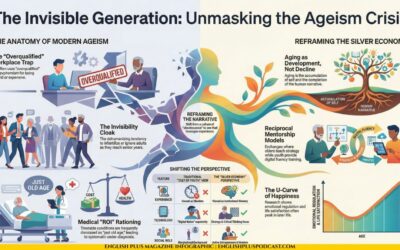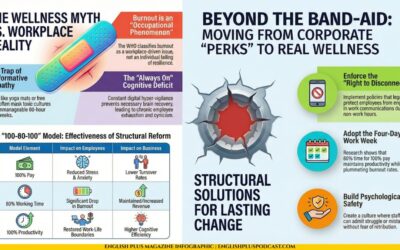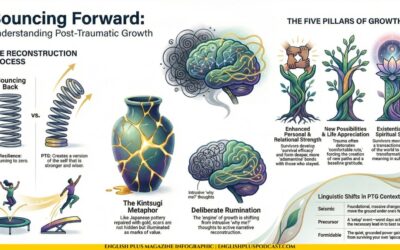- The Dawn of the Gig Economy: An Era of Change
- The Genesis of the Gig Economy
- The Allure of the Gig Economy
- The Hidden Shadows of the Gig Economy
- The Gig Economy and Society: A Complex Relationship
- Navigating the Gig Economy
- Keywords
- Key Takeaways
- FAQs
- What is the main difference between the gig economy and traditional employment?
- How does the gig economy benefit businesses?
- What are the risks for gig workers in terms of job security?
- What legal protections do gig workers typically lack?
- Does the gig economy contribute to income inequality?
- How does the gig economy challenge traditional work norms?
- What are policymakers doing to regulate the gig economy?
- Can the gig economy help reduce unemployment rates?
- What impact does the gig economy have on public finances?
- How can workers thrive in the gig economy?
- Myth Buster
- Myth: The gig economy provides stable and secure employment.
- Myth: Gig workers enjoy the same legal protections as traditional employees.
- Myth: The gig economy is suitable for everyone.
- Myth: Gig work guarantees a better work-life balance.
- Myth: The gig economy is only for young people.
- Myth: Gig workers always earn high wages.
- Myth: The gig economy will replace traditional employment entirely.
- Myth: Gig workers have complete control over their work.
- Myth: The gig economy eliminates the need for workplace collaboration.
- Myth: All gig workers are financially successful entrepreneurs.
- Checkpoint
The Dawn of the Gig Economy: An Era of Change
In a world constantly evolving, the shape of the workforce also shifts dramatically. The rise of technology and the internet, with their ability to connect people globally in mere seconds, has spawned a new economic paradigm – the gig economy. Replacing traditional 9-to-5 jobs, this phenomenon has taken a firm foothold in society. However, as with every coin, the gig economy has two faces – one brimming with opportunities and flexibility, and the other revealing hidden risks and challenges.
The Genesis of the Gig Economy
The gig economy, a term coined in the early 21st century, signifies a labor market characterized by short-term, freelance, or contractual work as opposed to permanent jobs. Technology has been the primary catalyst in driving this trend. As internet accessibility skyrocketed, platforms such as Uber, Airbnb, and Fiverr materialized, offering a smorgasbord of short-term job opportunities.
But why the sudden shift? The answer lies in the pursuit of flexibility. Many workers sought liberation from the rigidity of traditional employment, craving the ability to control their work schedules, income, and tasks. Companies, on the other hand, found gig work to be financially favorable. It eliminated the need for long-term commitments and reduced costs associated with full-time employees.
The Allure of the Gig Economy
The gig economy is rife with advantages that make it irresistible to both workers and businesses. One of the most enticing benefits is flexibility. Gig workers can select jobs according to their convenience, often working on multiple projects simultaneously. This ability to determine one’s work-life balance can lead to higher job satisfaction.
For businesses, the gig economy reduces overhead costs significantly. There’s no need to invest in office space, equipment, and additional employee benefits. Gig workers are also a boon during peak periods, providing an easily scalable workforce. Businesses can maintain operational efficiency without making long-term employment commitments.
Moreover, the gig economy helps battle unemployment by offering more opportunities for work. It can also serve as a stepping stone for individuals looking to transition into a new field. Thus, the gig economy caters to a vast demographic: students, stay-at-home parents, retirees, and those in-between jobs.
The Hidden Shadows of the Gig Economy
As the gig economy continues to grow, concerns and criticisms have arisen. The most significant concern is the lack of job security. Gig workers can lose their source of income abruptly without the cushion of severance pay. Also, in countries where employment is tied to access to health care and other social services, gig workers may find themselves in a precarious position.
Moreover, gig workers often lack legal protection. They are usually classified as independent contractors rather than employees, meaning they miss out on benefits such as sick leave, vacation pay, and employer-contributed retirement plans. The implications of this precarious arrangement are far-reaching, affecting not only the individual but also social security systems and public finances.
Additionally, the gig economy has been accused of promoting a ‘race to the bottom,’ where gig workers continually undercut each other’s rates to secure work. This phenomenon can lead to wages dropping below sustainable levels, trapping workers in a cycle of underemployment and poverty.
The Gig Economy and Society: A Complex Relationship
The gig economy, with its flexibility and short-term commitments, mirrors the fast-paced and individualistic ethos of our times. It encourages entrepreneurial spirit, self-reliance, and adaptability—qualities highly valued in our society. Yet, its implications are far-reaching and multifaceted, leading to profound societal transformations.
From a social perspective, the gig economy challenges traditional norms about work, creating a new paradigm where employment is fluid, dynamic, and decentralized. This shift has spurred debates about the meaning of work, job security, and the role of corporations in society.
From an economic standpoint, the gig economy is a double-edged sword. While it has helped businesses reduce costs and increase efficiency, it also threatens to disrupt labor markets, exacerbate income inequality, and strain public finances.
From a legal perspective, the gig economy raises new questions about labor laws and workers’ rights. Policymakers are grappling with how to regulate this new model of work and protect the rights of gig workers, leading to significant legal battles worldwide.
Navigating the Gig Economy
The rise of the gig economy heralds a new era in the world of work. It offers a plethora of opportunities for both workers and businesses, promising flexibility, autonomy, and efficiency. Yet, it also brings substantial risks and challenges that we must address to ensure a fair and inclusive labor market.
As the gig economy continues to evolve, policymakers, businesses, and workers alike need to engage in a meaningful dialogue about how to navigate this new terrain. The goal should be to leverage the benefits of the gig economy while mitigating its risks – ensuring that all workers, regardless of their employment status, have the opportunity to thrive in the digital age.
In sum, the gig economy is not just a trend; it’s a profound shift in our societal and economic structures. As we continue to grapple with its implications, one thing is clear: the gig economy, for better or worse, is here to stay.
Keywords
- Gig economy: A labor market characterized by short-term, freelance, or contractual work instead of permanent jobs.
- Flexibility: The ability for workers to control their work schedules, income, and tasks according to their convenience.
- Traditional employment: Refers to the conventional 9-to-5 jobs with long-term commitments to a single employer.
- Freelance: Working independently on a project or assignment basis, without long-term commitment to a single employer.
- Independent contractors: Individuals who work on a contractual basis and are not classified as employees, often lacking benefits and legal protections.
- Job security: The assurance of continued employment and income stability.
- Underemployment: A situation where individuals are working part-time or in jobs that do not fully utilize their skills and qualifications.
- Income inequality: The unequal distribution of income among individuals or groups within a society.
- Labor laws: Regulations and legal frameworks that govern employment relationships, including rights and protections for workers.
- Policymakers: Individuals responsible for formulating and implementing policies, including regulations related to the gig economy.
Key Takeaways
- The gig economy has emerged as a result of technological advancements and offers flexibility for workers and cost-saving opportunities for businesses.
- Gig workers enjoy the freedom to choose their projects and work on multiple assignments simultaneously, leading to higher job satisfaction.
- Businesses benefit from the gig economy by reducing overhead costs and gaining access to a scalable workforce during peak periods.
- However, gig workers face challenges such as lack of job security, limited legal protection, and the potential for underemployment and low wages.
- The gig economy has significant implications for society, economics, and labor laws, prompting debates about work norms, income inequality, and workers’ rights.
- Policymakers are grappling with how to regulate the gig economy and protect the rights of gig workers while fostering a fair and inclusive labor market.
FAQs
What is the main difference between the gig economy and traditional employment?
The gig economy is characterized by short-term, freelance, or contractual work, whereas traditional employment involves long-term commitments to a single employer. Gig workers have more flexibility in choosing their projects and work schedules, while traditional employees have a more stable source of income and access to benefits.
How does the gig economy benefit businesses?
The gig economy allows businesses to reduce overhead costs significantly. They do not need to invest in office space, equipment, or additional employee benefits. Additionally, during peak periods, businesses can easily scale up their workforce by hiring gig workers, ensuring operational efficiency without long-term employment commitments.
What are the risks for gig workers in terms of job security?
Gig workers often face a lack of job security. They rely on short-term contracts or assignments and may lose their source of income abruptly without the cushion of severance pay. This uncertainty can make it challenging to plan for the future and maintain financial stability.
What legal protections do gig workers typically lack?
Gig workers are often classified as independent contractors rather than employees. As independent contractors, they miss out on benefits such as sick leave, vacation pay, and employer-contributed retirement plans. They also lack access to certain legal protections that employees enjoy, which can leave them vulnerable in terms of income stability and worker rights.
Does the gig economy contribute to income inequality?
The gig economy has the potential to exacerbate income inequality. In a competitive gig marketplace, workers may continuously undercut each other’s rates to secure work, driving wages down. This can result in unsustainable income levels and create a cycle of underemployment and poverty for gig workers.
How does the gig economy challenge traditional work norms?
The gig economy challenges the notion of traditional 9-to-5 jobs with long-term commitments to a single employer. It promotes a more fluid, dynamic, and decentralized approach to employment. This shift raises questions about the meaning of work, job security, and the role of corporations in society.
What are policymakers doing to regulate the gig economy?
Policymakers are grappling with the task of regulating the gig economy and protecting the rights of gig workers. They are exploring options to ensure fair working conditions, address issues of job security, and extend legal protections to gig workers. This includes debates around redefining employment classifications and updating labor laws.
Can the gig economy help reduce unemployment rates?
The gig economy can contribute to reducing unemployment rates by providing more work opportunities. It offers flexible employment options for a diverse demographic, including students, stay-at-home parents, retirees, and those transitioning between jobs. However, it is important to ensure that gig work provides fair compensation and stability for workers.
What impact does the gig economy have on public finances?
The gig economy can strain public finances in countries where access to social services is tied to employment. Gig workers classified as independent contractors may not contribute to social security systems through employer contributions, potentially creating challenges for funding public programs and services.
How can workers thrive in the gig economy?
To thrive in the gig economy, workers need to actively manage their careers, build a strong network, and continuously update their skills to remain competitive. It is essential to diversify their client base, maintain financial discipline, and invest in personal and professional development to adapt to changing market demands.
Myth Buster
Myth: The gig economy provides stable and secure employment.
Reality: The gig economy often lacks job security, with gig workers facing uncertain income streams and a lack of severance pay.
Myth: Gig workers enjoy the same legal protections as traditional employees.
Reality: Gig workers are typically classified as independent contractors and may miss out on benefits and legal protections such as sick leave, vacation pay, and employer-contributed retirement plans.
Myth: The gig economy is suitable for everyone.
Reality: While the gig economy offers opportunities for a wide range of individuals, not all professions or industries lend themselves well to gig work. Some jobs require long-term commitments and specialized skills.
Myth: Gig work guarantees a better work-life balance.
Reality: While gig work can offer flexibility, it may also blur the boundaries between work and personal life. Gig workers often face challenges in setting clear boundaries and managing their time effectively.
Myth: The gig economy is only for young people.
Reality: The gig economy caters to a diverse demographic, including students, stay-at-home parents, retirees, and individuals transitioning between jobs. Age is not a barrier to participating in gig work.
Myth: Gig workers always earn high wages.
Reality: While some gig workers may earn competitive rates, intense competition and the race to the bottom can drive wages down. Many gig workers face the challenge of earning sustainable income.
Myth: The gig economy will replace traditional employment entirely.
Reality: While the gig economy has gained prominence, traditional employment will likely continue to coexist. Certain industries and job roles require long-term commitments and specialized expertise that may not be fulfilled by gig work.
Myth: Gig workers have complete control over their work.
Reality: While gig workers have more autonomy in choosing their projects and work schedules, they are still subject to client demands and market dynamics. Their control may be limited by the availability of gigs and client preferences.
Myth: The gig economy eliminates the need for workplace collaboration.
Reality: While gig workers often work independently, collaboration and coordination with clients and other gig workers are still crucial in many gig-based projects.
Myth: All gig workers are financially successful entrepreneurs.
Reality: While some gig workers may achieve financial success and thrive as entrepreneurs, others face challenges such as inconsistent income, limited growth opportunities, and lack of financial security.
Checkpoint
What is the gig economy?
A) A traditional 9-to-5 job with long-term commitment
B) A labor market characterized by short-term, freelance, or contractual work
C) A form of unemployment
D) A government-led employment program
B
What is one of the advantages of the gig economy for workers?
A) Guaranteed job security
B) Limited flexibility
C) Access to employee benefits
D) Ability to control work schedules and tasks
D
How does the gig economy benefit businesses?
A) By increasing overhead costs
B) By providing long-term employment commitments
C) By reducing costs and accessing a scalable workforce
D) By promoting income equality
C
What is one of the challenges faced by gig workers in terms of job security?
A) Limited legal protection
B) Access to benefits such as sick leave
C) Severance pay upon job loss
D) Stable and predictable income
C
How does the gig economy impact income inequality?
A) It eliminates income inequality entirely
B) It has no impact on income inequality
C) It can exacerbate income inequality by driving wages down
D) It promotes income equality by providing equal opportunities
C










0 Comments